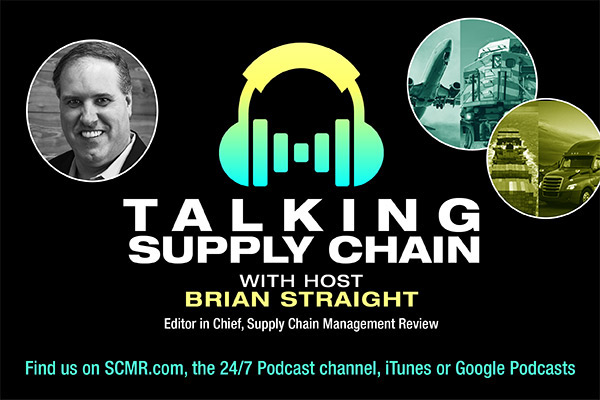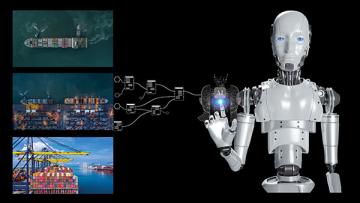The latest forecast by the National Association for Business Economics (NABE) reflects a greater appreciation of the importance of stimulus policies in countering forces holding down the economy’s performance.
In a recent survey, seventeen percent of survey respondents characterized the expansion as “uneven, dominated by stimulus policies.” That is up from just 5 percent in May. The dominant characterization of the economic “recovery”—held by 37 percent of the NABE Outlook panel—was that of an expansion remaining “subpar as severe wealth losses and onerous debt burdens inhibit spending and lending.” Any “stagflation scenario,” combining persistently weak growth and escalating inflation, remains a long-shot.
These findings informed a discussion at last week’s 2010 Supply Chain Council Executive Summit, held in Houston.
Among the panelists providing an overview of “Supply Chain Management in the New Global Economy,” was Luciana Suran, an economist with CB Richard Ellis Econometric Advisors.
Suran, a NABE member, noted that strong export activity and increased intermodal transport use are emerging trends that will play a significant role in industrial performance in the coming year and beyond.
“Trade levels have rebounded, but export growth has so far outperformed import growth,” she said. “According to the latest monthly trade data, export growth that began in the second quarter of 2009 has reversed 36 percent of the recession-related losses. Imports, which also began growing in the second quarter, have erased only 25 percent of their decline.”
According to SCOR spokesmen, “recessions are not created equal,” and the recent economic downturn is no exception.
“The current recession has been marked by a severe inventory drawdown not seen in previous economic downturns,” added spokesmen.
Suran and co-panelists summarized how the unique nature of the latest economic downturn has affected supply chain operations, including changes in procurement practices and transport methods. Topics that were discussed included economic growth outlooks in both the industrialized and emerging economies, supply chain responses to the economic downturn, global trade flows, and the central role played by inventories in the economic recovery.
SC
MR

More Associations
- Uber Freight’s Val Marchevsky to deliver Keynote at NextGen Supply Chain Conference
- Last call for speaker abstracts, award submissions for NextGen Supply Chain Conference
- ProMat 2025 show wrap up
- Nature and supply chain innovation
- Turning cold storage into a hot career: Hunting for tomorrow’s skilled workforce
- Register to speak at the 2025 NextGen Supply Chain Conference
- More Associations
Latest Resources

 Explore
Explore
Topics
Education News
- Uber Freight’s Val Marchevsky to deliver Keynote at NextGen Supply Chain Conference
- Last call for speaker abstracts, award submissions for NextGen Supply Chain Conference
- ProMat 2025 show wrap up
- Curing all that ails the procurement talent pipeline
- Nature and supply chain innovation
- Turning cold storage into a hot career: Hunting for tomorrow’s skilled workforce
- More Education
Latest Education Resources

Subscribe

Supply Chain Management Review delivers the best industry content.

Editors’ Picks





